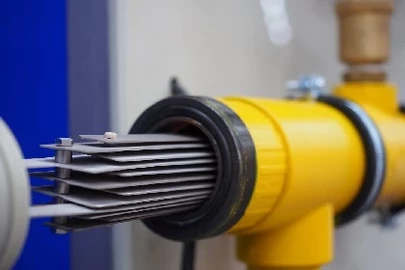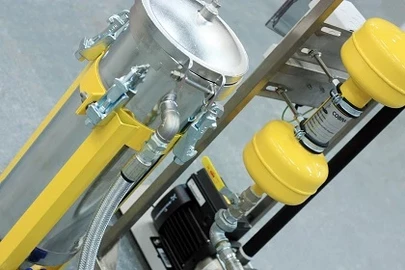CPT represents a sophisticated penetration test method which can be used to rapidly obtain information on variations in soil type and properties with depth.
The electric cone is pushed into the ground on rods using a CPT rig. Tip resistance, friction and dynamic porewater pressure are measured by transducers in the cone, which are connected to the surface via an umbilical cable. The test gives a continuous output from the sensors which can be interpreted to provide a profile of soil type and strength. Correlation with other geotechnical properties can often be carried out.
SOCOTEC has a range of CPT rigs to suit a wide variety of site access and testing requirements, making CPT a versatile and cost effective method for ground investigation.
Field data can be provided on completion of each test and processed data within 24 hours. The data is also reported in AGS4 digital format.
Cone Penetrometer Test Rigs
- 20 tonne fully enclosed heavy crawler with self-levelling jacks
- 9 tonne rubber tracked crawler
Cone Type
- Electric cone and piezocone – measurement of tip resistance, sleeve friction, pore pressure and inclination
- Dissipation test – measurement of pore pressure behaviour
- Seismic cone – measurement of downhole shear wave velocity and small strain shear modulus
- Magnetometer cone – measurement of magnetic field for detection of UXO
- Cone pressuremeter – see Pressuremeter Testing
- Flat blade (Marchetti) dilatometer – see Pressuremeter Testing
- Field vane – see In Situ (Field) Testing
- Mostap sampler – recovery of 1m long tube samples in protective sock
CPT Test for Soil
The Cone Penetration Test (CPT) is a fundamental method in geotechnical engineering, crucial for determining the properties of soils. By pushing a cone, connected to a series of rods, into the ground at a constant rate, we gather continuous data on the soil's resistance to penetration. This provides invaluable insights into the soil's characteristics.
During the test, we measure the tip resistance—the stress on the cone's tip—and the sleeve friction, which is the resistance on the surface sleeve. These measurements are key to identifying soil type and stratigraphy. Some CPT devices also record the porewater pressure, offering additional information about the soil's water content.
The friction ratio, defined as the ratio of sleeve friction to tip resistance, is another critical parameter. High friction ratios typically indicate clayey soils, while lower ratios suggest sandy soils.
CPT Test Results
The results of the CPT test provide a comprehensive understanding of the soil's mechanical properties and stratigraphy. They are usually presented as a graph, with the depth of the test on the vertical axis and the measured parameters—such as tip resistance, sleeve friction, and porewater pressure—on the horizontal axis. This graphical representation allows for an easy identification of different soil layers and their properties.
The parameters can be further analysed to determine specific soil characteristics. For example, the friction ratio can be used to identify the type of soil: high values usually correspond to clayey soils, while lower values suggest sandy soils.
In addition, the porewater pressure data can offer insights into the soil's drainage characteristics and potential for liquefaction, which is crucial for certain construction projects.
Lastly, the test results are often compared with soil samples taken from the site for further accuracy. This comparison is essential for validating the CPT data and ensuring a thorough understanding of the soil conditions.
CPT testing offers several advantages. It minimizes soil disturbance and boasts high production rates, making it a cost-effective choice for ground investigations. At SOCOTEC, we provide our clients with accurate, actionable data, ensuring every project is built on a solid foundation with CPT testing services.

Talk to our experts
Want to find out more about SOCOTEC's Site Investigation services?
You might also be interested in:








